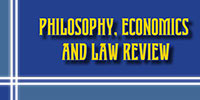John B. COBB, jr.
Ph.D. (Theology), Professor (Claremont School of Theology), USA.
en.wikipedia.org/wiki/John_B._Cobb
jcobb@ctr4process.org
UDC 159
DOI : 10.31733/2786-491X-2022-1-41-48
Keywords: strategy of understanding the world, multiculturalism, human attitude to the world, Whitehead
Abstract. The author studies the practices of understanding the world in Western and Buddhist cultures on the basis of comparing the attitude to the reality of the world and the reality of the human person. The author believes that the scientific vision of the universe, which has become dominant in Europe and which has influenced the scientific revolution of modern times, offers great advantages in terms of technological development of mankind, but it ignores the spiritual needs of the individual. Therefore, the author considers the synthesis of both traditions as a necessary prerequisite for overcoming the current worldview crisis. The article is devoted to the study of strategies for understanding the world in the European and Indian traditions. The author believes that the great simplification of understanding, which is associated with thinking or material substances in relative motion, has allowed the natural sciences to move forward quickly. But if the world consists of matter in motion, human goals play no role in explaining what is happening, and therefore people are not responsible for what they do. In contrast, in the East, particularly in India, thinkers paid more attention to discovering the essence of man and his attitude to the world. The author argues that human reality is such that people everywhere, even in the Indo-European world, live by stories. They can be pure myth or pure history or a mixture of both. In science, the only object of study is effective reason. Indo-European culture does not value for the purposes of cognition any sensory experience, except sight, because the data of any other sense organ do not fit into the world of matter. It is emphasized that science and philosophy, which are so arbitrary in the choice of empirical data and so committed to ideas for which there is no evidence, should not be considered the last word of those who truly love wisdom. Modern researchers should encourage thinking that is less closed in both science and philosophy.
References
Aquinas, Th. (2021). Summa Theologica. Part 1. Kindle edition. Delhi Open Books.
Bohm, D. (1951). Quantum Theory. New York: Prentice-Hall.
Halapsis, A. V. (2018). The Measure of All Gods: Religious Paradigms of the Antiquity as Anthropological Invariants. Anthropological Measurements of Philosophical Research, 14, pp. 158-171. DOI: http://doi.org/10.15802/ampr.v0i14.150756.
Hume D. (1986). Philosophical Essays Concerning Human Understanding. Hildescheim: Georg Olms Verlag.
Kant, I. (1961). Critique of Pure Reason. (Trans. by F. Max Müller, 2nd Edition). New York: Dolphin Books.
Whitehead, A. N. (1933). Adventures of Ideas. London: Cambridge University Press.
Whitehead, A. N. (1938). Modes of Thought. New York: Macmillan.
Whitehead, A. N. (1978). Process and Reality. New York: Free Press.
Whitehead, A. N. (1960). Science and the Modern World. New York: Macmillan.
Whitehead, A. N. (1927). Symbolism, Its Meaning and Effect. New York: Fordham University Press.
Whitehead, A. N. (1959). The Function of Reason. Boston: Beacon Hill.
